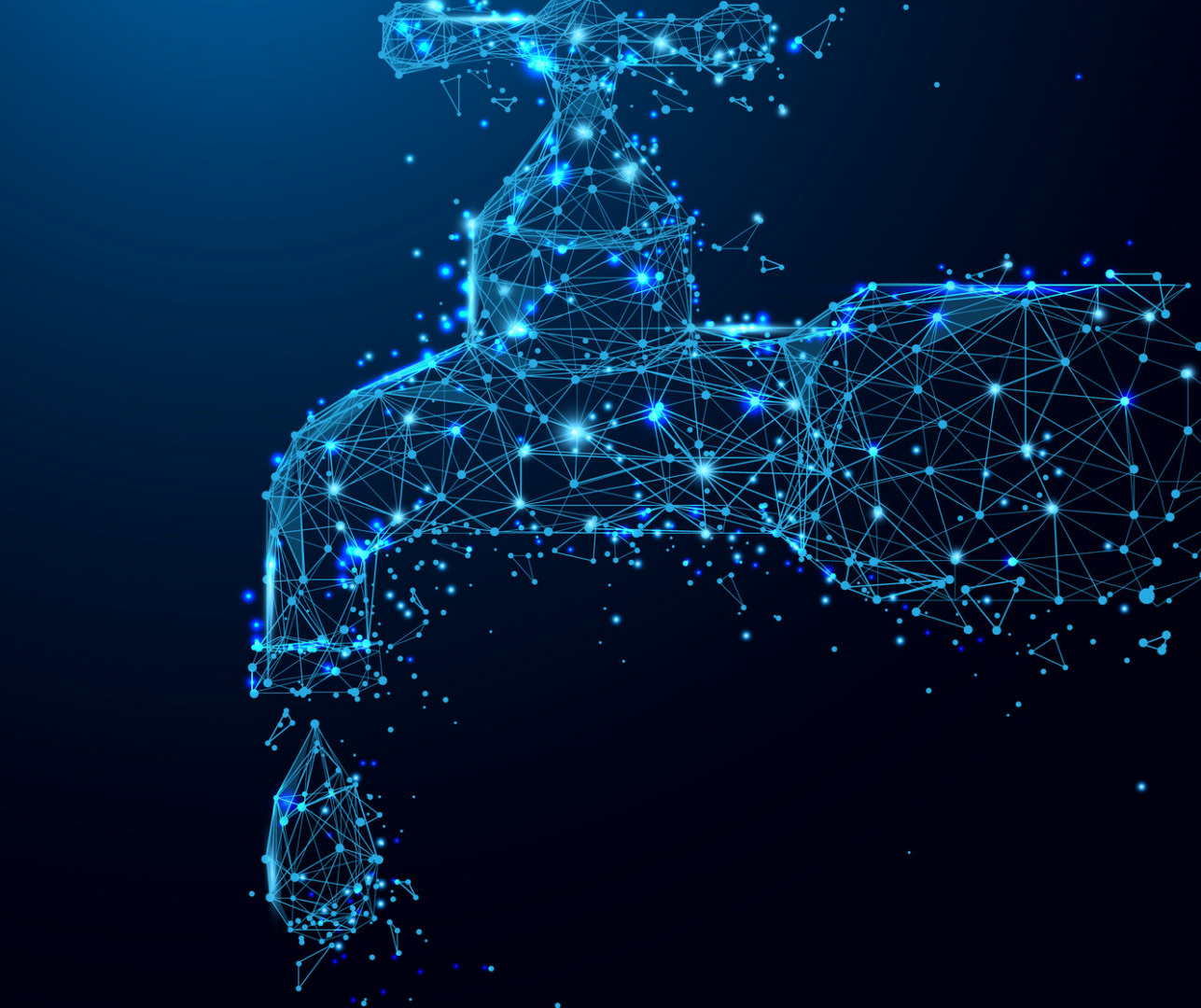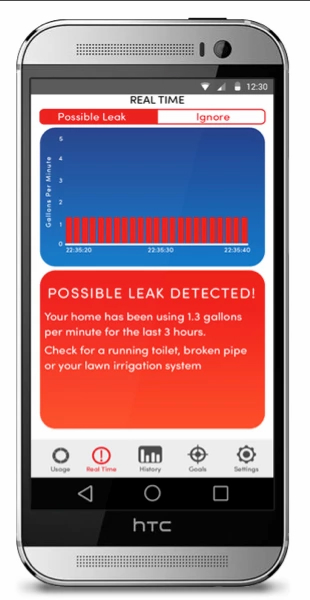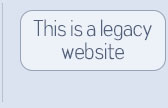
Water Efficiency: Unlocking the Value of Smart Meter Data
Posted on: June 2018Despina Manouseli
 |
About the author: Despina Manouseli is a Teaching Fellow at UCL Energy Institute. She is the Deputy Director of the brand-new ‘Energy Systems and Data Analytics’ MSc programme and responsible for a course on Data Analytics and the Built Environment. She completed her PhD at WEDC – Loughborough University and she studied Civil and Water Engineering in Greece. |
WATEF blog July 1st 2018
Water Efficiency: Unlocking the Value of Smart Meter Data
Five years ago, I was a (very stressed) research student searching for data: domestic water consumption data from an adequate number of homes in the UK that would help me answer the question – "Do water efficiency programmes in the UK lead to a decrease in domestic water demand and if so, how much water is being saved?"
Two years ago, I gave an answer to the above question (to a certain, doctoral degree worthy extent). But it was really difficult. It took more than six months of relentless emails, calls and meetings at UK water companies to identify cases where not only had domestic efficiency initiatives been implemented but also where a certain amount of data were available for me to perform an analysis of water savings. How come there is not enough data out there?, I wondered.
Luckily, and with the precious help of two people who were kind enough to devote some of their time to assist me, I gained access to monthly and 6-monthly water demand records of households that had participated in two different efficiency programmes, supplemented by sociodemographic data at the household level. Why did my search for data have to be so long and full of uncertainty? How much easier and more accurate would my analysis be if I also had sociodemographic information about a control group of households as well? What if they exist somewhere and I just have not looked in the right place? I asked myself at night. Every night. For several months.
These days of my PhD life are long gone – but not forgotten. Over the past few months I have been reading and learning a lot about energy efficiency and smart cities. I have come to realise how much water infrastructure has been overlooked when considering smart cities and resource efficiency - which seems strange when water services are so crucial for human health and well-being. Although water is cheaper than other utilities, it is a precious resource and we must make sure that it is being used wisely. Energy efficiency research has broken tremendous new grounds while water efficiency research lags behind. The way I see it, the reason for this is the slow uptake of metering (still just over 50% of UK households have water meters) and the even slower uptake of smart meters by the water industry. Importantly, this situation seems to be changing.
 |
 |
||
| Source: https://www.watercanada.net/un-releases-guidelines-for-water-data-management-policy/ | Source: https://www.watercanada.net/un-releases-guidelines-for-water-data-management-policy/ |
Smart water (and energy) consumption monitoring still raises privacy and data protection concerns in the UK, probably due to the consumers’ limited knowledge in the context of smart metering (Krishnamurti et al., 2012) - There is a need for a clearer definition of smart metering and better dissemination of its uses and benefits to the UK public. Nonetheless, water providers have started trialling smart metering schemes in several locations. Smart metering, as well as universal metering, has been proved to be an effective means to reduce domestic water consumption – mainly because consumers can see the effect of their water-using behaviour on their bills. Research has demonstrated that smart meter data that only log at minute or hourly intervals can also lead to better understanding of the factors contributing to peak water demand.
When smart metering is combined with water use information feedback, accessible via a computer or smart phone, customers become more aware of how their habits affect their water usage (and their bills) and they are encouraged to have a greater sense of responsibility for their practices. Better informed consumers use water more wisely – increased awareness can lead to behaviour change and finally to the adoption of water-saving routines. A recent literature review reveals that a smart meter rollout which involves a customer engagement program that provides detailed water consumption information feedback can achieve water savings in the range of 4.2% to 8.5%. These savings might persist if an ongoing feedback program is present (Liu and Mukheibir, 2018).
High frequency smart systems that record information in 5-10 second intervals, aided by pattern recognition algorithms, enables classification of aggregated water use to specific end-uses (toilet flushing, showering, use of a washing machine etc.) and enables comparison with usage patterns across an entire city. This can provide information about existing leaks to both utilities and customers (via email alerts or in-home displays), aiding timely leakage detection and repair. Limiting in-house leakage to a minimum, helps reduce a water utility’s non-revenue water levels. During periods of increased water stress, utilities can now use the customers’ historical water end-use patterns to better understand water usage and to design water efficiency interventions, tailored to the end-use profiles of specific groups of households – thus maximizing the chances of an efficiency initiative being effective in substantially reducing consumption. Additionally, householders can be better guided as to which appliances best serve their needs.
Smart metering means enormous amounts of high resolution water demand data – Big data. So, does this mean that the more data we collect, the better for us? Not necessarily. The opportunity lies in how big data is used. How it is managed, stored, archived, cleaned and processed is a tough challenge. Without storage provisions, detailed data management planning and highly skilled analysts, big data can bring no benefits to any industry. Skilled researchers in the field of water demand and efficiency can play a major role in reaping the benefits of big data in the water industry.
But will these data be easily accessible to academic researchers? In my experience, data and knowledge sharing between industry and academia is not easy or straightforward. It can be very time consuming for both parties. The potential sharing of much larger volumes of sensitive high-resolution consumption data can add to this complexity. One possible solution could be a secure online platform where the water industry can make the smart meter data they possess as well as detailed information about ongoing water efficiency initiatives visible to accredited researchers. I strongly believe it is crucial that such a mechanism is built so that a water supplier-academia synergy can be enabled for the benefit of both, for water efficiency research to grow and for the transition to smarter, water-wise cities and futures.
Link to Doctoral Thesis: https://dspace.lboro.ac.uk/dspace-jspui/bitstream/2134/25503/1/Thesis-2017-Manouseli.pdf
Find my research on: https://www.researchgate.net/profile/Despina_Manouseli
Further info on ESDA MSc, UCL: https://www.ucl.ac.uk/bartlett/energy/programmes/msc-energy-systems-and-data-analytics
References
Krishnamurti, T., Schwartz, D., Davis, A., Fischhoff, B., de Bruin, W.B., Lave, L. & Wang, J. (2012). Preparing for smart grid technologies: A behavioral decision research approach to understanding consumer expectations about smart meters. Energy Policy 41 (2012) 790–797.
Liu, A., Mukheibir, P. (2018). Digital metering feedback and changes in water consumption – A review. Resources, Conservation & Recycling 134 (2018) 136–148.



